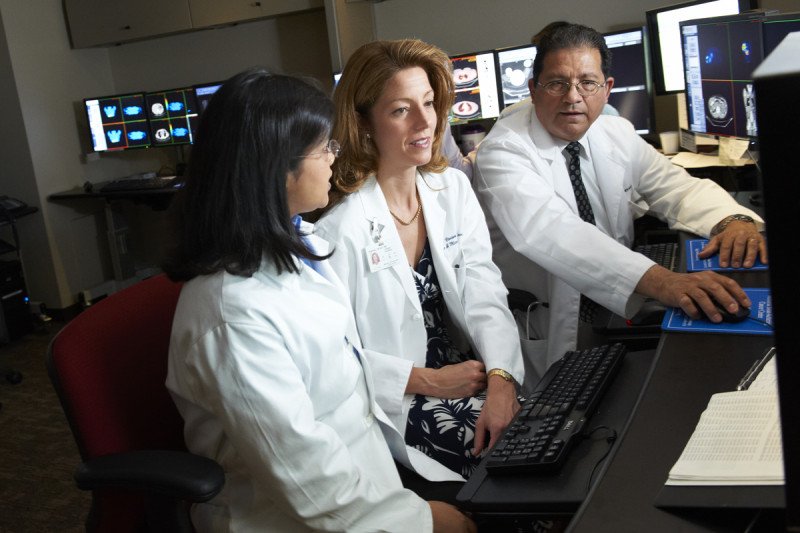
When you come to us for adrenal tumor treatment, you are coming to a cancer center ranked #1 in the nation for Urology Cancer Care this year by U.S. News & World Report. Here at MSK, you will have a team of experts caring for you. Experts from endocrinology, nuclear medicine, surgery, medical oncology, and interventional radiology collaborate on a personalized treatment plan that takes into account all of your needs.
Treatment will depend on the type of adrenal tumor you have and where it’s located. Your doctor may recommend one or several of the following: surgery, hormone therapy, chemotherapy, radionuclide therapy (injection of a radioactive substance into the tumor), or other therapies.
Small, benign incidentalomas often don’t need to be operated on. Instead, we may simply recommend that you are tested regularly for changes in your hormone levels and undergo regular CT scans or other types of imaging tests.
We usually remove functional, hormone-producing tumors with surgery. If you choose to have surgery, you may need special medication to get your adrenal gland function and hormone levels back to normal. The good news is that after surgery, many people no longer need medicines to control high blood pressure or diabetes that were caused by the functional tumors.
If you have an aldosteronoma, surgery can often be effective in removing the tumor and helping lower your blood pressure. If you’re too sick for surgery or want to pursue a different approach, we may be able to offer you drug treatment that manages your symptoms by blocking the effects of aldosterone on your body.
Our doctors also treat bilateral adrenal hyperplasia (BAH), a condition that produces symptoms similar to those of aldosteronoma. Surgery is generally not effective for BAH, but we can offer you medicines that might help with high blood pressure.
The first treatment for pheochromocytomas is surgery. However, if you have malignant pheochromocytomas that have spread beyond the adrenal glands, we may recommend a combination of treatments along with surgery, such as medicines, external radiation therapy, and chemotherapy.
With benign, or noncancerous, paragangliomas, we’ll likely recommend surgery as well as medicines and other therapies.
The first treatment for adrenal cortex tumors is surgery. For a while after the operation, you may need to take cortisol-replacement medication, such as hydrocortisone or prednisone, while we wait for your adrenal gland to begin producing normal levels of the hormone again.
There are many treatment options for adrenal cortical carcinomas, including medications, radiation therapy, surgery, and chemotherapy. We can combine treatments if the cancer has metastasized, or spread, beyond the adrenal glands.
If you have a tumor that has spread or come after being first treated, or if you’re too sick to undergo surgery, we may recommend a procedure called tumor ablation. This allows us to use heat or cold to kill cancer cells, relieving some of your symptoms and improving your quality of life.
We’re available 24 hours a day, 7 days a week




